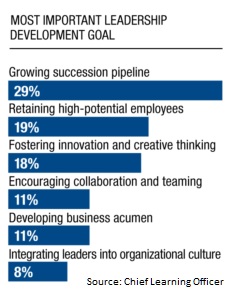Editor’s Note: It’s an annual tradition for TLNT to count down the most popular posts of the previous 12 months. This is No. 19 of the 708 articles. You can find the complete list here.
∼∼∼∼
“We do not train future pilots; we train future captains.”
I am a sucker for a good quote. This came from a pilot [Captain] from Cathay Pacific in talking about the pilots he flies with. The comment has leadership written all over it.
“We do not train and develop managers; we train and develop the next generation of future leaders.”
That should be the mantra of every manager up to the executive suite. If and only if you believe that is your role should you be in a leadership position. Using that lens, if you asked your leaders how they view their role, how many do you think you’d fine who believe that wholeheartedly.
I would venture to say that it would be a small minority. That should be every leader’s mission statement: “I Develop Future Leaders.”
Who made the biggest impression?
As one of the exercises for my custom leadership development program, I ask each participant to describe the person who made an impression on their lives.
This is a great, insightful exercise that sometimes becomes emotional. Each participant has to intro that person to the group. Sometimes it is an uncle, parent or high school teacher; it runs the gamut. I instruct them to think of how the lessons learned from that person still are part of their daily lives. And then I ask, “Are you making that same impact on your team? Why and Why not.”
In part two of that same exercise I ask, “Of the past 2-3 jobs, how many of your direct reports do you still stay in touch with? When was the last point of contact? Can you share the topic?”
Again, we are staying in the lane of development and the objective is to see how many are developing their people. If they are, they are still in contact. I tell the participants in my workshop, “They are still thinking about life’s lesson that they learned from you. Your mission may not have been ‘developing leaders’ per se, but by your actions you were preparing them for a more extensive role in their life and careers.”
Are you making a difference?
That is the mark of a true leader: you must make a difference in people’s lives. The kind word, the listening, the caring, the feedback, the mentoring all play a role in developing people. Did you notice that all these are soft skills, which today are the foundation of leadership. The technical or hard stuff will always play a role because that is the threshold qualification, but the soft skills are paramount today.
You are developing leaders, and if you do not feel that, then maybe you should recheck your focus. It is OK if you do not want to carry that “burden.” Organizations should make room for these type contributors. Everyone is not cut out to develop leaders. But our problem is that we put people into these coaching roles who may be steeped in the technical but the other side is sorely lacking. As a result of that imbalance you will get lack luster performance from the individual as well as the team
Leadership is becoming a priority
Organizations today — at least the smart ones — are recognizing that simply competing to attract the best and the brightest talent in the marketplace is not enough to maintain their competitive edge.
Instead, many are setting their sights on developing inside talent. Developing the next generation of leaders is an important priority for a majority of organizations, according to a recent survey of more than 800 CEOs conducted by The Conference Board.
We spend as much as $50 billion annually on leadership development, says Chief Learning Officer magazine. That is a huge amount but if we had to do an ROI analysis on that spend it would be hard to come up with at least some evidence to show the investment worked. Sure there will be numerous offsites, books read, role plays, etc. But my thought is that training has to be geared towards people.
Soft skills make the leader
In the exercise where participants name a person — notice that I did not say leader — who had an impact on them, they almost always come back with everyday people; people who could not in any way occupy the “leader spotlight” and probably never attended a leadership development program. The driving theme through all their stories was the personal touch:
- The kind words
- The listening
- The caring
- The feedback
- The mentoring
These are the soft skills that leaders need to make a difference and make a positive impact. If there are only two phrases a leader needs to know to be a great leader it is these: “Thank you” and “I appreciate you.”
Try it sometimes; no royalty payment requested. The return on investment in those few syllables will be off the chart.
